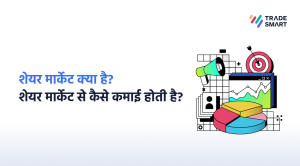It is very important for an Option trader to understand the STT (Security Transaction Tax) applicable in case he does not squares-off the position or if the position is exercised by the exchange for an ITM(In-the-money) option.
Let us take the following two scenarios for better understanding of the STT charges.
Scenario 1: Buy 1 lot (75 qty) of Nifty call option with a strike price of 6000 at Rs.90 and sell it at Rs 100. The STT charged will be Rs 4.68.
(75*100*0.0625% = 4.68) i.e. (Quantity * Premium * 0.0625% STT charge)
Note: STT of 0.0625% is charged on the sell side only.
Scenario 2: Buy 1 lot (75 qty) of Nifty call option with a strike price of 6000 at Rs. 100 but don’t sell it and let it expire on the last day of the contract.
Now on the day of the expiry if the Nifty Spot closes at 6100, then the call option will be ITM as the Spot price > Strike price & the STT charged will be Rs. 571.87.
(6100*75*0.125%) = 571.87 i.e. (spot price *Qty*0.125% STT on auto expiry).
Note: STT of 0.125% is charged, where option is exercised by the exchange.
New changes in STT calculation for scenario 2
The finance minister Nirmala Sitharaman on July 5 2019 proposed to restrict Security Transaction Tax (STT) to the difference between settlement and strike price in case when an in-the-money (ITM) / close-to-money (CTM) option is exercised by exchange.
With the new STT calculation method, option traders will end up paying much lesser tax for derivative options when it is exercised by the exchange. Now STT will be levied on the difference between the strike price and the settlement price.
Ex: Considering the same above example, new STT applied would be Rs. 9.375 [(6100-6000)*75*0.125%]
The net STT saving here would be Rs. 562 (571.87-9.375).
New STT computation shall be effective from 1st Sept. 2019.
Concept of “Do-not-exercise” option contracts
If the STT levies by the exchange is less than the premium received by the clients then their long ITM options position will be exercised by default. However, if the STT surpasses the premium, VNS will go for ‘Do not Exercise’ choice for the Close-To-Money (CTM*) options”
Three strike prices above and below the settlement price are called as CTM contracts.
Let’s understand with the below example.
Suppose you have purchased Nifty call option with strike price 10100. The settlement price declared on expiry day, by the exchange is 10200. This means the option that you bought is called as In-the-Money (ITM) option and also called as close to money(CTM*) option contract.
*CTM contract: Three strike prices above and below the settlement price are called as CTM contracts. In our example, the settlement price is 10200. Hence call options with strike price of 10150, 10100, 10050 and put options with strike price 10250, 10300, 10350 are called as CTM contracts.
If STT charge is higher than the premium then it will be marked as “Do-not-exercise”. If STT levied is less than the premium then RMS will give intimation to the exchange to exercise the option and respective amount will be credited to the account.
Case 1: When STT applied is higher
Consider you have purchased 1 lot(75 qty) of Nifty ITM call option with strike price 10150 and 10160 settlement price declared by the exchange. If you do not square off the position on the expiry date, the amount would get credited could be Rs. 750 [(10160-10150)*75] then RMS will check what is the STT levied to the transaction. In this case, STT levied is Rs.952.5 (10160*0.125%*75)
Looking at the above example, it is clear that the STT is higher. Hence, RMS will go for “Do-not-exercise” facility and no STT will be debited to your account. You are going to lose only the premium that you paid while buying the contract.
Case 2: When STT applied is lower
Let’s assume you bought 1 lot of Nifty, call option with strike price 10100 and consider the same settlement price of 10160. In this case if you do not square off the position on expiry, you would receive Rs. 4500 [(10160-10100)*75] and the STT charged will be Rs. 952.5 (10160*0.125%*75)
Case 2 is clearly saying that the STT levied is very less than the premium receivable. In this case RMS will give the intimation to exchange to exercise the position from exchange’s end. The amount credited to your account would be Rs. 3547.5 (4500-952.5).













If i sell my call option between 3.00pm to 3.30 on expiry date what will be the STT charge.
“With effect from September 1, 2019 where option is exercised, STT at the prescribed rate shall be levied on the “intrinsic value” instead of the settlement price as at present. Further, in this regard the intrinsic value has been defined as the difference between the settlement price and the strike price of the option,” an NSE circular dated August 20 said.
As per this the new calcuation for STT is = 0.125% of Intrinsic value * lot size.
Isint it the new calculation??
Yes correct.
I think the STT has been revised to 0.01% sometime back ? Or is that only for futures ?
You are correct. The revision was for futures and not for options.